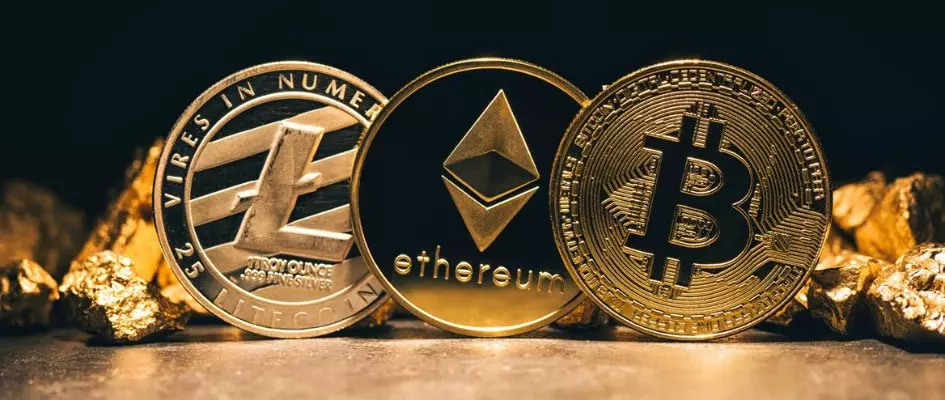
When Bitcoin launched in 2009, it stood alone as the first decentralized digital currency. It was hailed as revolutionary—a peer-to-peer system that promised financial freedom outside the control of governments and banks. Over a decade later, Bitcoin has grown into a trillion-dollar asset class, often dubbed “digital gold.”
But today, Bitcoin faces fierce competition. Ethereum has risen as a powerful challenger with its smart contract capabilities, while thousands of altcoins—ranging from stablecoins to meme coins—are battling for relevance. The question looms large: is Bitcoin still the undisputed king of crypto, or has its crown slipped in the age of Ethereum and the altcoin army?
Bitcoin: The Pioneer and Store of Value
Bitcoin’s greatest strength lies in its origin. As the first cryptocurrency, it remains the most recognized, trusted, and widely adopted. Its fixed supply of 21 million coins makes it a natural hedge against inflation, attracting institutional investors who see it as a long-term store of value.
Unlike newer cryptocurrencies, Bitcoin doesn’t attempt to do everything. It focuses on one key role—being a decentralized, censorship-resistant, and scarce digital asset. This simplicity has allowed it to remain resilient even as competitors experiment with new technologies.
For many, Bitcoin’s identity as “digital gold” cements its place as the cornerstone of the crypto market. But critics argue that being just a store of value limits its potential in a world where blockchains are evolving into ecosystems.
Ethereum: The Smart Contract Revolution
If Bitcoin is digital gold, Ethereum is more like digital oil—fueling a vast array of decentralized applications (dApps). Launched in 2015, Ethereum introduced smart contracts, enabling developers to build decentralized finance (DeFi) protocols, non-fungible tokens (NFTs), and decentralized autonomous organizations (DAOs).
Ethereum’s ability to power entire ecosystems gives it utility beyond value storage. For example:
- DeFi platforms like Uniswap and Aave allow peer-to-peer lending and trading.
- NFT marketplaces like OpenSea thrive on Ethereum’s infrastructure.
- DAOs are experimenting with decentralized governance models.
The Ethereum network’s recent shift from proof-of-work (PoW) to proof-of-stake (PoS) through the Merge also addressed long-standing environmental concerns, making it more energy efficient than Bitcoin. This has boosted its appeal among eco-conscious investors and developers.
Ethereum’s critics, however, point to scalability issues, high transaction fees, and fierce competition from newer blockchains like Solana, Avalanche, and Cardano. Still, its dominance in the smart contract space positions it as Bitcoin’s closest rival.
The Altcoin Army: Diversity and Experimentation
Beyond Bitcoin and Ethereum, the “altcoin army” has exploded in size and scope. These coins aim to carve niches by addressing limitations in existing blockchains or introducing entirely new concepts.
Some key categories include:
- Stablecoins (USDT, USDC, DAI): Pegged to fiat currencies, they offer stability and are widely used for payments and remittances.
- Layer-1 Blockchains (Solana, Avalanche, Cardano): Compete with Ethereum by offering faster, cheaper, and more scalable alternatives.
- Privacy Coins (Monero, Zcash): Focus on anonymity, addressing concerns over surveillance and financial privacy.
- Meme Coins (Dogecoin, Shiba Inu): Though often dismissed as jokes, they’ve built strong communities and seen massive (if volatile) growth.
- Utility Tokens (Chainlink, Polygon, Uniswap): Power specific functions within decentralized ecosystems.
The sheer diversity of altcoins reflects crypto’s experimental spirit. While many fade into obscurity, others drive real innovation that challenges Bitcoin’s relevance as the singular crypto leader.
The Case for Bitcoin’s Continued Dominance
Despite the competition, Bitcoin still enjoys several advantages:
- First-Mover Advantage – Bitcoin’s brand recognition is unmatched. It is the “entry point” for most new investors in crypto.
- Decentralization – With no central leadership or development team, Bitcoin is less vulnerable to governance disputes compared to other projects.
- Security – Its proof-of-work model, while energy intensive, is considered the most secure and battle-tested consensus mechanism.
- Institutional Adoption – Bitcoin has gained traction as an investable asset, with ETFs, hedge funds, and corporations holding it as part of their portfolios.
For these reasons, Bitcoin remains the most stable and trusted pillar of the cryptocurrency market.
The Case Against Bitcoin’s Throne
On the other hand, critics argue that Bitcoin’s limitations prevent it from remaining king forever:
- Lack of Utility: While Ethereum and altcoins power DeFi, NFTs, and Web3, Bitcoin has limited use cases beyond being a store of value.
- Environmental Concerns: Its energy-intensive proof-of-work system is a constant target of criticism, especially as the world moves toward greener alternatives.
- Slower Innovation: Bitcoin’s conservative development approach makes it less adaptable to new trends compared to altcoins experimenting with novel solutions.
- Shifting Market Narratives: Younger investors are increasingly drawn to ecosystems like Solana or Polygon, where innovation feels faster and more community-driven.
The Global and African Context
In global markets, Bitcoin’s dominance has declined from over 90% in 2017 to around 50% today. Ethereum and altcoins have steadily eaten into its share.
In Africa, however, Bitcoin remains incredibly relevant. With inflation and currency instability plaguing countries like Nigeria and Zimbabwe, many citizens view Bitcoin as a hedge against economic uncertainty. Peer-to-peer Bitcoin trading volumes in Africa are among the highest worldwide, showing that for everyday people, Bitcoin still carries unmatched trust.
Yet, Ethereum and stablecoins are also gaining traction—particularly for remittances, DeFi access, and cross-border payments—signaling a more balanced crypto ecosystem on the continent.
So, Is Bitcoin Still King?
The answer depends on how we define “king.”
- As a store of value and entry point into crypto, Bitcoin remains unmatched. Its simplicity, security, and brand recognition ensure its relevance for decades to come.
- But as a technology platform and ecosystem enabler, Ethereum and the altcoin army are taking the crown. They’re driving the innovations—DeFi, NFTs, Web3—that are shaping the future of the digital economy.
Perhaps the better framing is this: Bitcoin is no longer the only king—it’s now part of a royal family of cryptocurrencies, each ruling its own domain.
Conclusion: Coexistence Over Competition
The crypto world is no longer a single-kingdom story. Instead, it’s a multi-chain empire where Bitcoin, Ethereum, and altcoins each play unique roles. Bitcoin will likely remain the digital reserve asset—the foundation of the crypto economy. Ethereum will continue powering decentralized innovation. And altcoins will push boundaries, experimenting with new use cases and applications.
So, is Bitcoin still king? Yes—but it now shares the throne with rivals and allies alike. The real story is not about one winner, but about how this growing family of digital assets reshapes finance, governance, and daily life across the globe—and in Africa.









